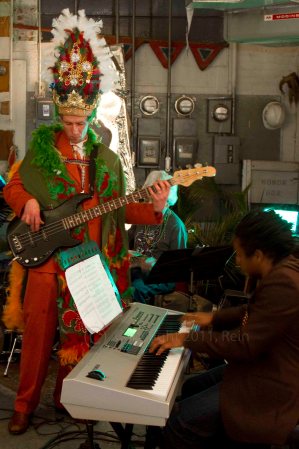 “I don’t want to know the law. Give me your best, bad argument.” This was the critique of one of my first memorandum that I drafted after leaving the world of federal law clerks and joining the world of large law firms.
“I don’t want to know the law. Give me your best, bad argument.” This was the critique of one of my first memorandum that I drafted after leaving the world of federal law clerks and joining the world of large law firms.
And so it is with Joel Tenenbaum. Mr. Tenenbaum admittedly downloaded songs (30 were at issue although it appears he downloaded closer to 1,000 songs) from a peer-to-peer network, ignored warnings from the plaintiff, his dad, friends and the university that he attended to stop downloading songs. He also switched servers as they were shut down because of the copyright infringement. On top of that, despite getting a sympathetic judge, the judge and at least one commentator considered his legal counsel to be a disaster. If true, Mr. Tenenbaum did not have much upon which to hang his hat on appeal.
Except for that pesky $675,000 damage award that the judge reduced to $67,000. The statute provides that the jury was entitled to award the plaintiffs between $750 to $150,000 for each infringement because Mr. Tenenbaum was considered a willful infringer. The amount of the award against an individual for copying and distributing songs makes for exciting headlines if you ignore that Mr. Tenenebaum acted willfully. I think this is where appellate counsel for Mr. Tenenbaum made it’s “best, bad argument.”
I say it is his best argument because the facts, i.e. Mr. Tenenbaum’s actions, work against him, the law is not in his favor and he may not have preserved important points for appeal. All he likely had left to argue was the amount of the award.
In essence, his counsel argued on Monday that the copyright statute does not specifically provide for statutory damages against individuals who are not seeking to make a profit (non-commercial users). Because there are no cases against a non-commercerial user, Mr. Tenenbaum argues that Congress could not have had non-commercial users like Mr. Tenenbaum in mind when it authorized statutory damages of up to $150,000 against willful infringers. You can listen to the oral arguments before the First Circuit here.
The reason why I believe the argument will fail and why his best argument is still a bad one, is that the statutory language and the legislative history don’t support the argument. The statute simply does not distinguish between “commercial” and “noncommercial” users. Nor are there any definitions in the copyright statute to define the two. Likewise, the history of the legislation that raised the statutory damages for willfulness to $150,000 shows that Congress was aware that the Internet was a game-changer in terms of enforcing copyrights.
It is true that very high awards could result if Mr. Tenenbaum willfully infringed 1,000 songs and the jury determined that each willful infringement was worth $75,000. But, as the Department of Justice argued, if the award is too high, then the court has the ability to reduce damages to an appropriate amount through remittitur. And the court did reduce the award. One could argue whether the award is still too high, but that argument goes to whether or not Congress made bad policy — there just doesn’t seem to be a convincing constitutional argument that the statutory scheme should only apply to a subset of those who infringe copyrights.
If Mr. Tenenbaum’s arguments win, then are those who work to create paintings, music, literature, plays, photographs, computer programs and other works nearly powerless to pursue those who knowingly infringe their works because the infringer was not a business or otherwise trying to make money from the infringement? The copyright owners could always seek their actual damages, but is that enough? What do you think?

